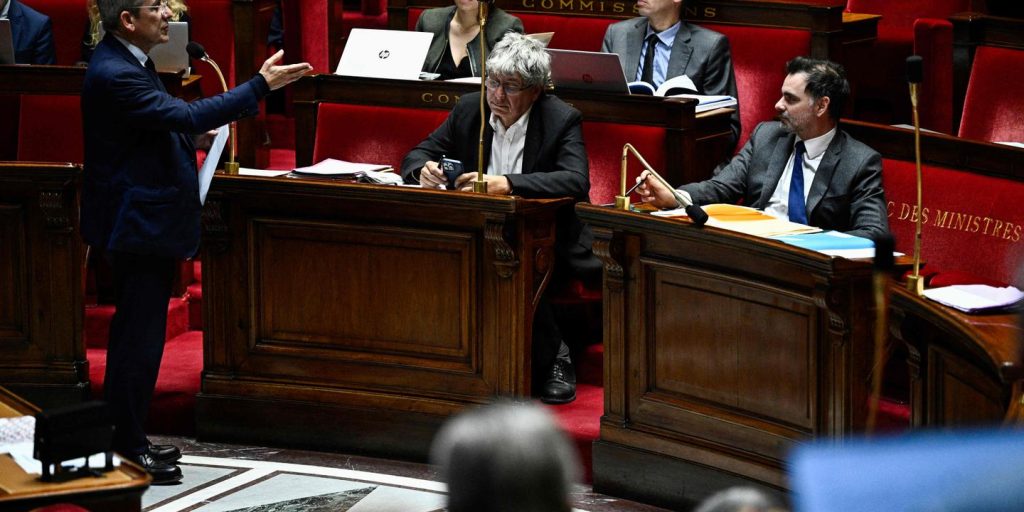The National Assembly has ultimately rejected the exceptional surtax on large companies proposed by the government in its 2025 budget plan, with MPs from the government camp and the National Rally voting against the article after the tax was significantly strengthened by an amendment from La France insoumise (LFI). This “exceptional contribution on the profits of large companies”, intended to contribute to the 60 billion euros in savings that the government hopes to achieve with its 2025 budget, is supposed to be in place for two years, and is expected to generate eight billion euros in 2025 and four billion in 2026. The contribution, which is expected to affect around 450 companies according to the executive, works by adding different surtaxes – based on the year and the companies’ turnover – to the corporate tax they must pay (which is currently at 25%).
However, an amendment from the left raised the tax rates for the first year, against the government’s advice, in order to increase the rate to 40% for companies with a turnover between 1 billion euros and less than 3 billion euros, and to 55% for those with a turnover greater or equal to 3 billion. This was a significant increase compared to the government’s original proposal. Minister of Budget Laurent Saint-Martin denounced the amendment, stating that it would extract nearly 13 billion euros more from the companies, and that none of them would remain in the country. In response, the LFI president of the finance committee, Eric Coquerel, argued that it was irresponsible to demand two more years of work from the country’s employees, given that these companies had accumulated billions in profits that were tax-free.
Socialist Philippe Brun criticized the “false allegations” about the impact of the amendment and rejected the accusations of a “confiscatory” measure, highlighting that it was only temporary for a single year. On the other hand, the Republican Right (formerly The Republicans) MP Philippe Juvin described it as no longer being a budget law, but rather a demolition project. Along with the rest of the government coalition (EPR, Horizons, MoDem, DR), National Rally MPs and those from Eric Ciotti’s UDR group ultimately voted to reject the article as a whole, removing it from the text. The final version of the bill may still change during the parliamentary process with the Senate or through the use of Article 49.3.
In the context of budget discussions for 2025, tensions arose within the National Assembly between government officials, members of the opposition, and different political parties regarding the proposed surtax on large companies. While the aim of the surtax was to generate additional revenue for the government’s budget and contribute to ambitious savings targets, disagreements over the specific details of the tax rates and their potential impact on businesses led to a heated debate. The rejection of the surtax by the National Assembly signifies a significant shift in the government’s fiscal policy and may have implications for future economic measures and budget planning.
The amendment introduced by the Left significantly increased the tax rates on large companies, prompting concerns from government officials about the potential negative consequences of such a measure. While supporters of the amendment argued that companies should bear a greater burden, critics expressed worries about the impact on the economy and the competitiveness of French businesses. The rejection of the surtax by a majority of MPs reflects the deep divisions within the National Assembly on tax policy and fiscal matters, highlighting the challenges of reaching consensus on complex economic issues.
The debate over the surtax on large companies also exposed broader ideological differences between different political parties in France, with left-wing parties advocating for more progressive taxation and right-wing parties emphasizing the importance of supporting businesses and promoting economic growth. The rejection of the surtax represents a victory for opponents of increased taxation on corporations, who argue that such measures could hinder investment and job creation. Moving forward, the government will need to reconsider its fiscal strategy and find alternative ways to achieve its budgetary goals while navigating the complex political landscape in the National Assembly. The outcome of this debate could have implications for future tax policies and economic reforms in France, highlighting the importance of finding a balance between revenue generation and economic growth.















